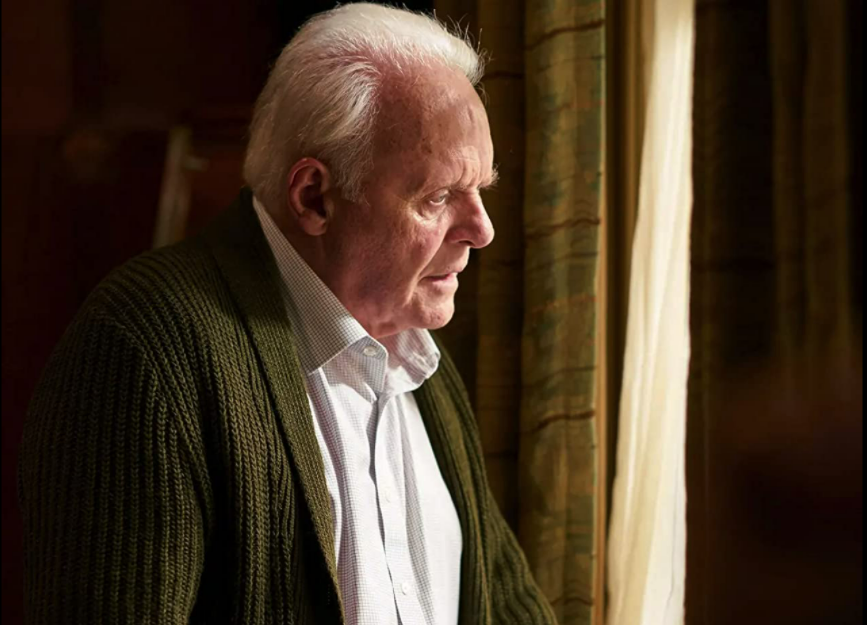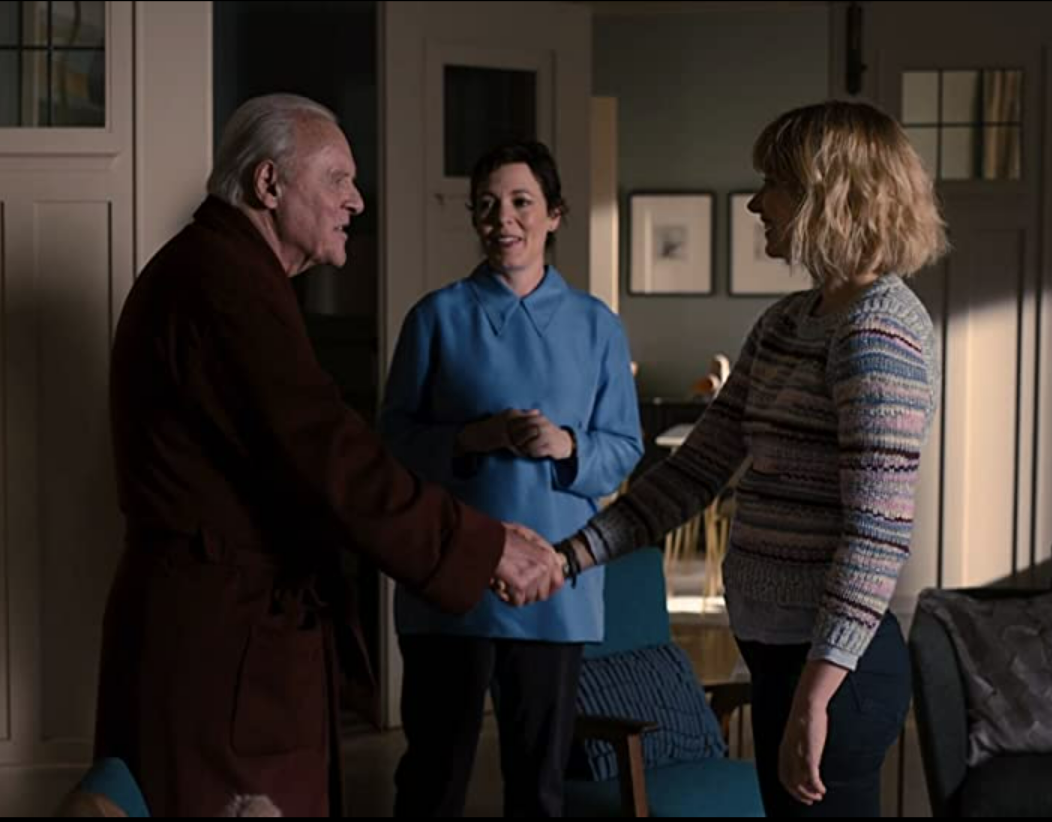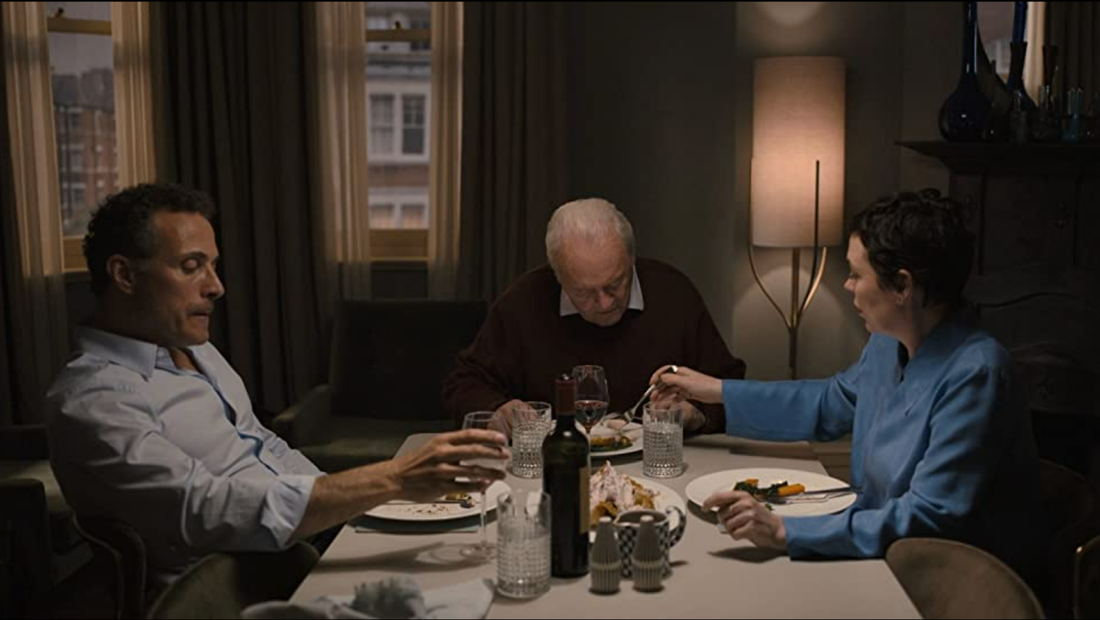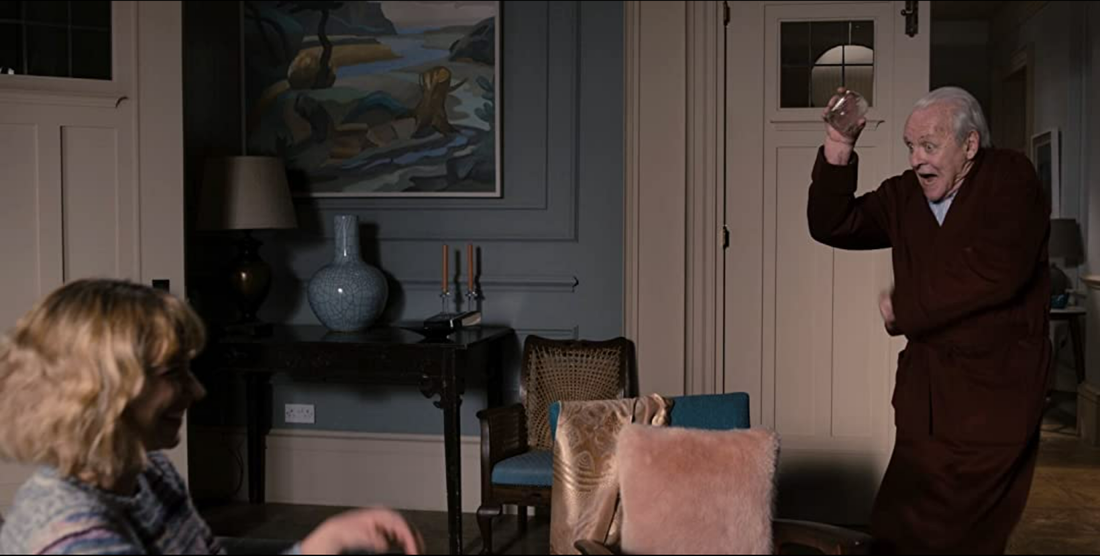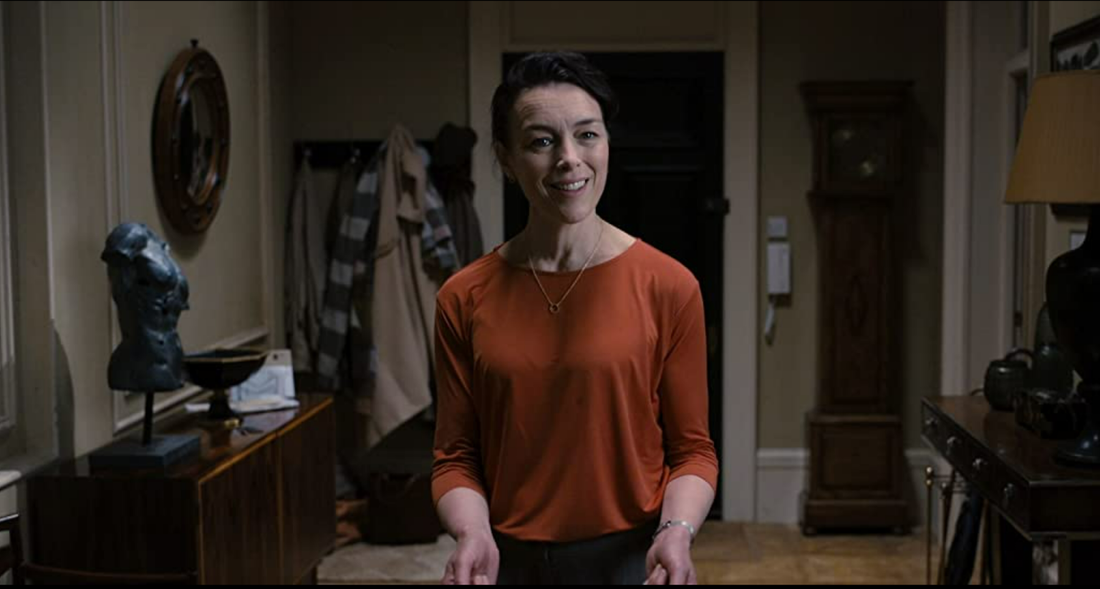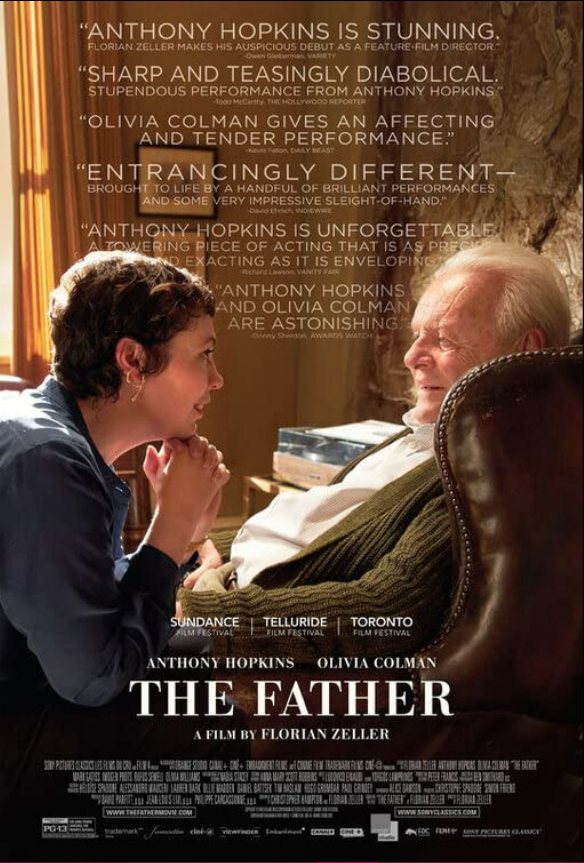|
The Father is the kind of film that’s got “awards season” written all over it - which is also the kind of film that’s difficult and daunting for an aspiring critic to approach. With its untouchable cast (namely, Oliva Colman and Anthony Hopkins) and unconventional narrative style, The Father may seem, at first glance, like a lofty art film that’s supposed to go over everyone’s heads. Directed by Florian Zeller and based on his play of the same name (Le Père), The Father has already received lots of attention ahead of its U.S. release. After its world premiere at the 2020 Sundance Film Festival, The Father secured four Golden Globe nominations along with a slew of other award considerations. Unlike other stage-to-screen adaptations, which tend to be dialogue-driven, there’s a lot more going in The Father than lengthy speeches used to show off a certain actor’s mastery of the craft. At first, we might expect it to be a highbrow, intellectually-driven film, and perhaps that’s what Zeller was going for. But I don’t think that’s necessarily the best way to watch it. Hopkins shares first names with his character, Anthony, an elderly man who wants nothing more than to grow old in the comfortable, familiar apartment in which he has lived for years. He’s frightened off every live-in aid that his daughter, Anne (Colman), has hired, and he refuses all professional help even as his memory loss starts to interfere with his daily tasks. Anne is compassionate and caring towards her father, but she and her husband, Paul (Rufus Sewell), can’t continue looking after him forever. As they try to work out their next steps, Anthony begins to question their intentions, along with his perception of the entire world around him. Many movie adaptations of plays get weighed down by wordiness, as if the film is a vehicle to showcase a certain actor’s take on the script rather than a chance to explore the text through a new medium. This is not the case with The Father. In this role, Hopkins is not a lofty Shakespearian or a cultured villain. He takes a different direction with his performance than what you might expect, creating a vulnerable and childlike character who makes us feel both sympathetic and uncomfortable. Hopkins doesn’t get caught up in eloquent dictation or overly-rehearsed delivery of his lines. He focuses on the character’s fragility and fractured sense of self, creating a man who is believably lost in the world rather than a symbolic character who emotes through lengthy speeches. With tight control over his tone and body language, Hopkins portrays a man who has, in fact, lost control. Because its protagonist has lost control and lacks a solid understanding of his surroundings, The Father makes for an unconventional narrative. When we watch a narrative film, we expect that we’ll be able to identify with a character who has a stable sense of reality and that we’ll follow their perspective throughout the story. Even in films that take us through mind-bending dreamscapes, there’s usually a trustworthy character who guides the narrative perspective, giving us a somewhat stable ground to stand on. In The Father, however, it’s not just that our main point of identification, Anthony, is confused by the world around him - it’s that his very sense of self is breaking down. As his memories are transposed on top of one another, Anthony begins to lose the reference points that he uses to identify himself - his age, his role as a father, his past jobs, etc. And since Anthony doesn’t quite know who he is, we don’t have a stable figure with whom we can identify. Watching the film is like watching a character move between alternate realities, and yet we know that this is no sci-fi flick. We can sympathize with Anthony because like him, we know there’s a stable version of the story that can set all the facts straight, but it’s frustratingly just out of reach. With its fuzzy details and an unstable point of identification, I had to ask myself what it was about The Father that made me care so much about Anthony. If he doesn’t remember who he is, we can’t get to know him, either. Is The Father more about memory loss in general than a specific, tangible character? What makes The Father so important is that it frustrates our need for concrete perspective and characterization. It frustrates the idea that to have a realistic, meaningful character, we must know a set of facts and traits about that character that are backed up by references to their past. In order to understand and sympathize with those who suffer from dementia, we have to first understand what it’s like to lose our sense of self. The Father serves as a reminder that a stable identity is a gift and a privilege, something that takes a lifetime to both build and tear down. In theatres March 12, 2021. Available on VOD March 26, 2021.
0 Comments
Leave a Reply. |
"Our embodied spectator, possibly perverse in her fantasies and diverse in her experience, possesses agency...finally, she must now be held accountable for it." Categories
All
|

